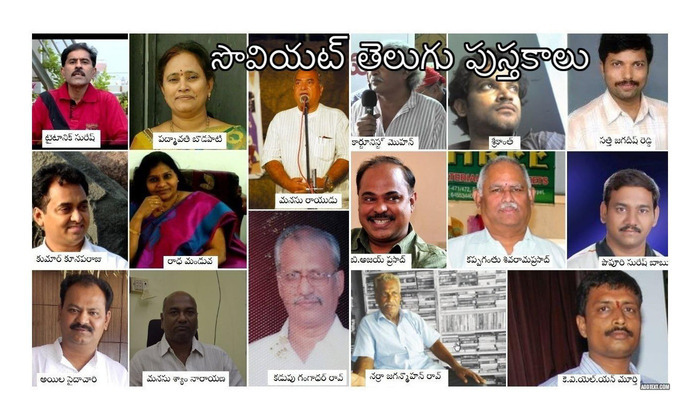Date: 31-July-2014
Sir,
I am grateful to you for this initiative. I am sure there would be many others too who would find a special significance in what you have embarked upon.
Our generation was brought up on a staple diet of translations. In particular, Soviet publications - delivered through high quality books at very nominal prices - opened our minds to world literature . Starting from children's books and moving on to Russian classics as well as books on science and engineering - followed by ideological debates and polemics, they broke the language barrier for many of us.
Across our towns and remote villages, thousands of our people reached out to world literature through these Telugu translations that were channelised by Vishalandhra. These inquisitive readers did not have to know English to discover new worlds outside their own.
For many like me, 'Pragati', 'Raduga' and 'Soviet Bhoomi' represented the magical world Russian folktales and beautifully illustrated, large children's stories; staring at the Siberian expanse in disbelief; distant sounds of bells of dogs pulling sleds as fine snow got sprayed and glimmered in moonlight; wandering along the banks of Volga in warm summers and hearing the voices of boatmen; watching steamers ply down the river from Astrakhan and running into strange-sounding towns like like Nizhny-Novogorod; ....and of course, meeting the unforgettable characters like Tolstoy's uncle Yeroshka, Gorky's grandmother, Chekhov's Vanya, Dostoevsky's Raskolnikov ....
When I visited USSR in the seventies as a young sailor, I made friends with local youth in Odessa. Seated in a restaurant that was not very far from the memorial to battleship Potemkin and the steps leading to the Opera House from the seafront (immortalised by filmmaker Eisenstein in his film 'Potemkin') - my Ukranian and Russian friends were surprised that I had read as a schoolboy, - not just Gorky's 'Mother', but Gogol's 'Evenings near the village of Dikanka' and 'Taras Bulba' and many other tales that originated in their part of the world. It was then that I told them about our shared world of translations.
Over toasts of fine Moldavian wine and caviar from Black Sea, my friends in Odessa expressed deep regret that they could not recall the name of even a single Indian writer - except that of Ravindranath Tagore.
But every one among them had seen Raj Kapoor's films and thought that Nargis was very beautiful. They knew that several languages exist in India but never heard of Telugu.
As you can see from this mail, this bygone era of Soviet translations holds a special significance for me. It is not just nostalgia; there is more to it. It is an inseparable part of the collective consciousness of a whole generation of our people.
I also have a special personal association to this lost world of Russian translations. Sri Vuppala Lakshmana Rao garu happens to be my father's uncle and my grandmother's (cousin) brother. Among our cousins, we used to refer to him as 'Moscow tatagaru'.
I remember admiring him from a distance on a few occasions when I saw him in family get-togethers, but never venturing to approach him to say what his work meant to me. I wish I did; for his sake, at least.
Thank you once again and good luck with your wonderful efforts. It will make me happy if you could share these thoughts with your friends who have been helping you in this important documentation work.
Sudhakar Unudurti




